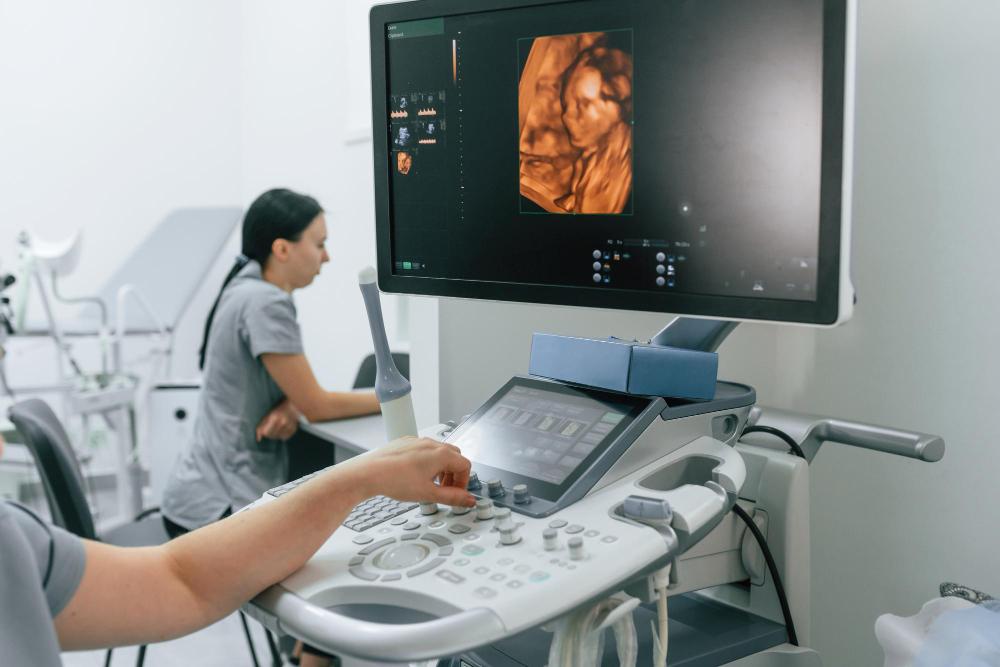What is Transvaginal Ultrasound (TVS)?
Transvaginal Ultrasound (TVS) is a safe imaging test. It uses sound waves to create pictures of the inside of the pelvis. Doctors often use TVS to look at the uterus, ovaries, and other nearby organs. Unlike a regular ultrasound, TVS uses a small probe placed inside the vagina. This gives clearer images. According to the World Health Organization (WHO), TVS is a common and trusted tool for women’s health.
When is TVS Recommended?
Doctors may suggest a Transvaginal Ultrasound (TVS) for several reasons. For example, you may need a TVS if you have:
In addition, TVS helps check for fibroids, polyps, or other changes in the uterus. Sometimes, it is used to monitor a pregnancy in its early stages. The Centers for Disease Control and Prevention (CDC) also notes TVS can help diagnose infections or other pelvic problems.
How to Prepare for a TVS
Preparation for a Transvaginal Ultrasound (TVS) is simple. Most women do not need to do much before the test. However, you may want to follow these tips:
Usually, you do not need to fast or stop taking medicines. Still, always follow your doctor’s instructions for TVS scan preparation.
Step-by-Step TVS Procedure
Knowing the transvaginal ultrasound procedure can help you feel at ease. Here is what usually happens:
The entire TVS scan usually takes about 15 to 30 minutes. You can ask the technician to explain each step as you go.
What to Expect During and After TVS
During a Transvaginal Ultrasound (TVS), you may feel a little pressure, but it should not hurt. If you feel pain, let your doctor know right away. Most women feel comfortable during the scan. After the test, you can return to normal activities. There is no recovery time needed. Sometimes, you may notice a small amount of discharge from the gel used. This is normal and should go away soon.
Benefits and Safety of TVS
TVS offers many benefits. For example, it provides clear images of pelvic organs. This helps doctors find problems early. In addition, TVS does not use radiation, so it is safe for most women, including those who are pregnant. According to peer-reviewed medical journals, TVS is a reliable way to check for cysts, fibroids, and other issues. The test is quick, painless, and has very few risks. Most women do not have any side effects.
Common Questions and Concerns
Many women have questions about TVS. Here are some common concerns:
If you have other worries, do not hesitate to ask your healthcare provider. They can explain what to expect during TVS and answer your questions.
When to Consult a Doctor
If you have pelvic pain, unusual bleeding, or other symptoms, talk to your doctor. They can help determine if a Transvaginal Ultrasound (TVS) is right for you. Even if you feel nervous, remember that TVS is a safe and valuable diagnostic tool. Early diagnosis can significantly improve your health and treatment options.
For personalized advice about Transvaginal Ultrasound (TVS), consult a healthcare specialist at Magnus Diagnostic Centre for expert care.

